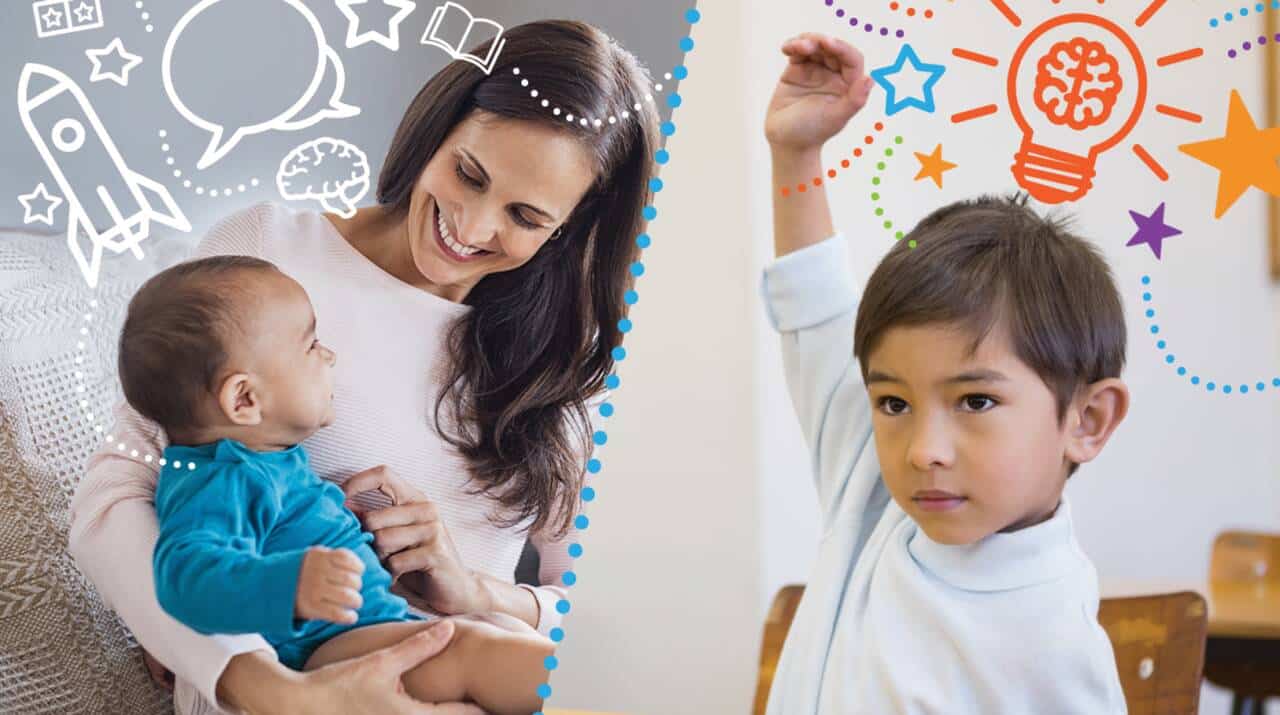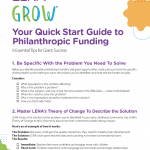A 10-year study by LENA researchers confirms that the amount of talk with adults that babies experience in the first three years of life is related to their verbal abilities and IQ in adolescence. Two-way conversations in the 18- to 24-month age range may be particularly important. The paper, “Language Experience in the Second Year of Life and Language Outcomes in Late Childhood,” was released for the first time today through advanced online publication in Pediatrics.
The publication marks the longest-term longitudinal study on the relationship between interactive talk in early childhood and later life outcomes. To collect data for the analyses, researchers enlisted 146 families who had participated in the first phase of the study in 2006. That original study enabled LENA to develop its wearable “talk pedometer” technology, which automatically and accurately measures adult words, back and forth conversations, and other language data. In 2016, the children, who were then 9 to 14 years old, participated in language and cognitive tests.
[quote]
The results: the adult words and especially the conversations the children experienced between 18 and 24 months correlated 10 years later with their IQ, verbal comprehension, vocabulary, and other language skills. The amount their parents talked to them was important, but the amount they talked with them (“conversational turns”) was even more important.
“It’s incredible that we are able to measure the relationship between the experiences of babies and their cognitive skills 10 years later,” said Dr. Jill Gilkerson, Chief Research and Evaluation Officer at LENA, and lead author on the paper. “It strongly supports what other research has shown: talk with babies may make a huge difference in their futures and there is a need to begin early, since parents’ talk habits in the 18-24-month window start forming from the moment the baby is born.”
Learn more about the conversational turns research in this webinar discussion featuring lead author Dr. Jill Gilkerson.
This is the third study published in 2018 concluding the predictive nature of conversational turns over adult words alone, even after controlling for socioeconomic status. The previous two studies were conducted by researchers at MIT and Harvard who used LENA technology and brain scans to show a relationship between conversational turns and brain activity and structure in four- to six-year-olds. These newly published longitudinal results build on those findings by looking at children at an even younger age range and showing that the relationship between conversational turns and cognitive skills bears up over time.
“We know all of the child’s conversational partners matter, from their parents and primary caregivers to their child care teachers,” said Dr. Stephen Hannon, president and chief operating officer of LENA. “This research confirms a growing body of science that says adult-child interactive talk is essential to early development and success in school. For years, we’ve emphasized conversational turns as LENA’s most important measure, and it’s gratifying to have this added and powerful support for that prioritization.”
Read media coverage of the story on U.S. News & World Report, ABC News, CBC News, and Romper.
[about]




